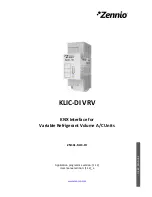
5. MAINTENANCE, ADJUSTMENTS AND CALIBRATION
Page 155
© 2009 DH Instruments, a Fluke Company
Open PPCH chassis to gain access to the mechanical module which includes the
hydropneumatic pump (see Section 5.9).
Disconnect the inlet, outlet, and drive connections
from the pump.
Wrap the fittings with paper towels and wear safety
glasses when cracking the pump outlet port. Full pump
pressure stored in the accumulator volume will expel about 1
cc of fluid through the pump outlet weep hole.
Remove the nuts that hold the pump shock mounts
and push the mounts out of the holes
Remove the top left mount from the pump. This will
allow the pump to pivot into the enclosure and then
out of the top of the unit.
Install the new pump in the reverse order (see Section
5.1, Table 25 to identify the correct pump to installed).
Apply Loctite™ 242 or equivalent non-permanent
thread locker to the pump mount threads and torque
the nuts to 6 Nm. To not over tighten the nuts or the
rubber will strip out.
Slide the mechanical module halfway into the
enclosure until it stops (see next photo).
Carefully position the unit to the upright position.
Reorient the
FILL/DRAIN
tube.
Slide the drawer fully out again, connect electrical
power and drive air. Plug the test port.
Prime the pump (see Section 5.10.1).
Set a pressure to 50% of full scale and visually check
for leaks. When finished, vent the system.
Slide the mechanical module back into the PPCH
chassis (see Section 5.9).
Step 6
Step 11
Open
reservoir
FILL/DRAIN
valve.
Purge system for 20 cycles to 75% of controller full scale, using
[PRIME]
,
<2purge>
(see
Section 3.3.8.2).
















































